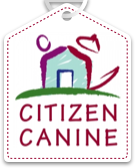More Salmonella Fears?
Salmonella is a type of bacteria which can grow on food prepared or stored in unsanitary conditions. Animals can usually handle a far less sanitary diet than humans, but they, too, are as susceptible to salmonella poisoning. Recently, OC Raw Dog, a California pet food producer, recalled over a ton of dog food after the Nebraska Department of Food and Agriculture discovered that the company’s Turkey & Produce Raw Frozen Canine Formulation had been exposed to salmonella.
The potentially infected food includes the 5 pound and 6.5 pound packages of Doggie Dozen Patties from lot 1511, with an expiration date of October 8, 2015. Most of these packages were shipped to Minnesota, Missouri, Pennsylvania and Colorado.
Salmonella-infected food is dangerous both to pets and humans. People who have contact with the food or an infected carrier are susceptible to the bacteria as well. Salmonella can survive for up to four hours on surfaces, fabrics, and skin. It is easily transferred to food prepared for human consumption or absorbed directly into the bloodstream via the mouth or eyes.
The symptoms of salmonella poisoning are similar for both humans and dogs. Vomiting, diarrhea, fever, and intense stomach cramps are common, though infected dogs may also just become lethargic and lose their appetite. If a potentially infected dog is showing these symptoms, they should be taken to a veterinarian immediately for a thorough diagnosis, as they could transfer the bacteria to other animals or humans. While most human victims recover within a week, salmonella can cause long-term effects or even death for those with pre-existing health conditions and weak immune systems.
The best way to avoid salmonella poisoning for humans or animals is to store food in tightly sealed containers, avoid consuming raw meat, wash fruit and vegetables well, and keep the food preparation areas clean and disinfected at all times.
